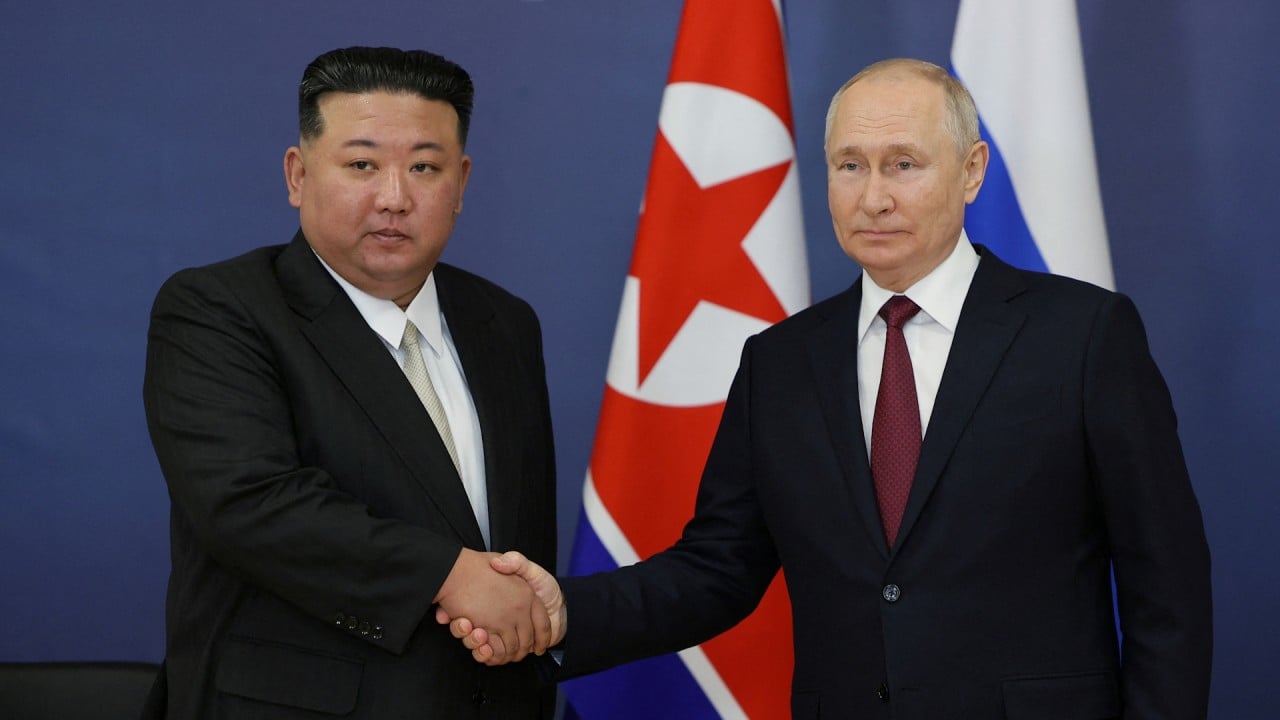
Blinken set to discuss Russia-North Korea military ties in first Seoul visit, amid Israel-Gaza, Ukraine wars
- The trip comes after the US and Seoul’s spy agency said Pyongyang had shipped ammunition and supplies to Moscow, for Russia’s war on Ukraine
- Seoul does not supply weapons to any country at war but could do so if North Korea is supplying weapons to Russia or even Hamas, analysts say

The agenda includes “the continued and growing threats posed by a range of North Korean actions, particularly its nuclear and ballistic missile programmes”, Assistant Secretary of State for East Asian and Pacific Affairs Daniel Kritenbrink said.
“Seoul has made it a rule to not provide any country at war with lethal weapons,” said Park Won-gon, a political-science professor at Ewha Womans University.
Foreign Minister Park said last month that Seoul would retaliate against Russia if Moscow transferred its missile technology to North Korea in arms transactions that would run afoul of UN Security Council resolutions.
South Korea’s spy agency, the National Intelligence Service (NIS), said last week the North had exported over 1 million artillery shells to Russia in 10 separate shipments, to support its war in Ukraine, since early August.
This roughly equates to two months of supplies required by Russia in its war with Ukraine, the NIS told lawmakers.
The North is now running its military factories “at full capacity” to meet Russia’s demand for military supplies, the NIS said.
The North “appears to have received technical advice” from Russia, raising the possibility of a successful launch following two failed attempts earlier this year, it said.
The North has said it would try again in October, but no such launch happened.
The NIS also said there were “indications” of the North’s leader Kim issuing an order “to look for ways to comprehensively support the Palestinians”, without giving further details.
North Korea has denied it was supplying arms to Russia. It has also dismissed allegations that its weapons were used by Hamas in the attack against Israel.
Concerns are growing that North Korea may gain access to Russia’s military technology but some analysts said the Kremlin has little interest in helping Pyongyang develop its weapons, due to the risk of further sanctions and economic downsides.
“If some technologies are provided to North Korea, the North Koreans are likely to resell them to third parties, which is not necessarily friendly to Russia’s interests,” said Andrei Lankov, a professor of political science at the Kookmin University in Seoul.
“At any rate, sending technologies to North Korea means creating a competitor in the international market,” he added.
Kim Joon-hyung, former head of the Korea National Diplomatic Academy, said aside from the North’s military supplies to Russia, the two countries were keen to collaborate on technology, manpower and natural resources.
“If the two countries forge supply chains including weapons and other manufacturing sectors, it would be much more threatening [to the security of the South and the West] than the North’s supply of weapons to Russia,” he said.


